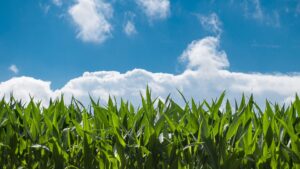Dawn Trautman is one of the latest Nuffield Scholars. The Nuffield Canada Scholarship is a rural leadership program available to anyone mid-career who is involved in agriculture in any capacity of primary production, industry or governance. Each year scholarships are awarded to individuals who are expected to assume positions of greater influence in their field in the future. This is Part 3 of a three-part series. Go here for Part 1 and here for Part 2.
Dawn Trautman knows there are a lot of promises behind Smart Agriculture — the emerging field of applying real-time artificial intelligence in the field, in greenhouses and harnessing the use of big data analytics in real time.
The key is speeding adoption. The way to do that, of course, is to create smart solutions to help growers adopt it.
“The idea is to bridge the gap between the potential and the reality. Right now, there’s a gap, and a large one. It’s like the Green Revolution. Before that there was a set level of activity, and afterward was a big bump. All of the sudden people’s best became a lot better,” says the 34-year-old Edmonton, Alta., resident and manager of Smart Agriculture and Food with Alberta Innovates.
Plant breeding plays a huge role in that, she notes.
“We’re still learning about the potential of plants and the interaction of genetics, environment and management. If you have good genetics but poor management and poor environment, you don’t get much out of the plant. Without good genetics, even with good environmental conditions, you don’t get a good yield.”
The key, she says, is to think about plant breeding, seed and agriculture not in terms of commodities, but in terms of food — and to think about the people buying that food.
“Consumers are increasingly disconnected from their food sources but have an increased interest in health, sustainability and transparency. This is where technology can play a role in bridging the smart agriculture gap.”
That’s because Smart Agriculture can also provide information that consumers want — info on traceability and farming methods used.
“There’s more uncertainty in our food supply, especially with COVID.”
—Dawn Trautman
As part of the Nuffield Scholarship program, she plans to study the barriers for smart agriculture adoption for producers while also expanding on opportunities for technology companies to develop and integrate made-in-Canada solutions for sustainable production.
She sees a silver lining in the pandemic, which cut short a recent trip she took to Australia as part of her scholarship-related work.
“There’s more uncertainty in our food supply, especially with COVID. Supply chains are disrupted, people are staying home. It’s bringing instability, and ag is an industry vital to the wellbeing of society. It might not be, ‘Oh I wish I had only organic food to eat.’ Maybe it’s, ‘I wish I had any food at all,'” she says.
“That uncertainty only breeds more mistrust, which is something Smart Agriculture can help with.”
Stacy Felkar is event co-manager for Olds College’s AgSmart, a two-day event focused on data and technology across the agriculture sector that held its first event in 2019. Felkar worked with Trautman to glean key insights that would allow AgSmart to showcase technology that’s vital to the future of Canadian plant breeding.
“Dawn was key to helping us pull off what we want to be a truly valuable exhibition. She’s very forward thinking looking at the role this technology will play,” Felkar says. “We’re based on the premise that we need to produce food more efficiently and sustainably using Smart Agriculture technology — it’s part and parcel of what we do, and Dawn is a real leader in this and has her finger on the pulse of what’s happening.”
According to Trautman, the second decade of the 21st century will be a defining one in the history of Canadian smart agriculture, provided the gap can be closed through more innovation she’s hoping to enable through pan-Canadian projects led by groups such as Alberta Innovates, which initiate, fund, and manage research and innovation partnerships.
“Places on earth where the population is expected to grow cannot access anymore land to grow food. Smart agriculture is really the only way to unlock the full potential that’s there,” Trautman says.











